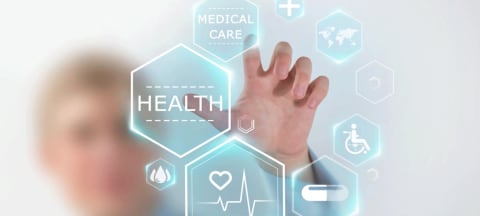Improved Patient Care Requires Healthcare Analytics
Improved patient outcomes and a push to reduce spending in healthcare have created an industry that is now driven by innovation and technological advancements. Healthcare analytics, the deep analysis of data being collected by organizations is at the forefront helping to drive much of the change.
 9 minute
9 minute

By leveraging key data, improvements are being made across the board – from research and pharmaceutical advancement to improved claims and better patient /doctor relationships.
Healthcare analytics uses data analysis to extract actionable and intelligent insights that are then used to improve operations, grow and discover new, important information.
In this post, we’ll look more closely at the ways patient care is being improved today and into the future thanks to healthcare analytics.
A Shift to Value-Based Care
Perhaps the largest shift happening in healthcare is the move to value-based care. This rewards providers for efficiency and effectiveness and shifts the focus away from traditional pay models where reimbursement for services is made based on fees for each visit. The goal with value-based care is to improve how patients are being treated, to drive down costs and also to improve overall population health management.
Analytics is Key
As this shift occurs, analytics – both the platforms collecting the information and the data scientists tasked with making sense of it – are a critical differentiator for organizations. Making better sense of available information and being able to predict and prepare for the future is helping providers in 3 key ways:
- Discover What’s Effective: A deep dive into data collected from computer systems, invoices, wearable devices, social media, and other sources, can help to uncover areas of the healthcare ecosystem where resources are being wasted or could be better used. In particular, tracking the performance of practitioners, it’s possible to identify changes that serve to improve patient care on an ongoing basis.
- Cut Costs: In addition to better patient services, this data is also being used to find out where funds can be better allocated. The on-going challenge in healthcare is a need to reduce spending. With data analytics, it’s possible to get to those not-so-obvious places where costs can be cut or re-directed and as a result, help the industry to maximize revenue.
- Far-Reaching Benefits: While making use of data analytics is certainly beneficial for patients and providers, there is a far-reaching benefit to the innovation that has a positive impact on entire populations that make adoption critical. Leveraging data from whole populations – such as demographic or sociographic information and medical factors, it’s possible to uncover when a population is most at risk for chronic disease. Early intervention and strategies to implement proper care will reduce long-term care and save lives.
Work with VLink
VLink has vast experience in healthcare analytics solutions and has worked with many healthcare providers to deliver effective and efficient solutions to their biggest problems. This included a Patient Attribution Algorithm solution, a Sepsis Prediction tool & a Healthcare Analytics Reporting system.
Visit the Healthcare page on our site to learn more about the things we’re doing to help drive this industry forward.
We’ll also be exhibiting at the Expo.Health event this week at the Renaissance Boston Waterfront Hotel in Boston, MA. The event, which is taking place July 31-August 2, is dedicated to digital health improvements made through technology collaboration.
Have questions? Want to discuss your healthcare analytics needs? We’d love to chat! Visit us at booth #14 at the event.










